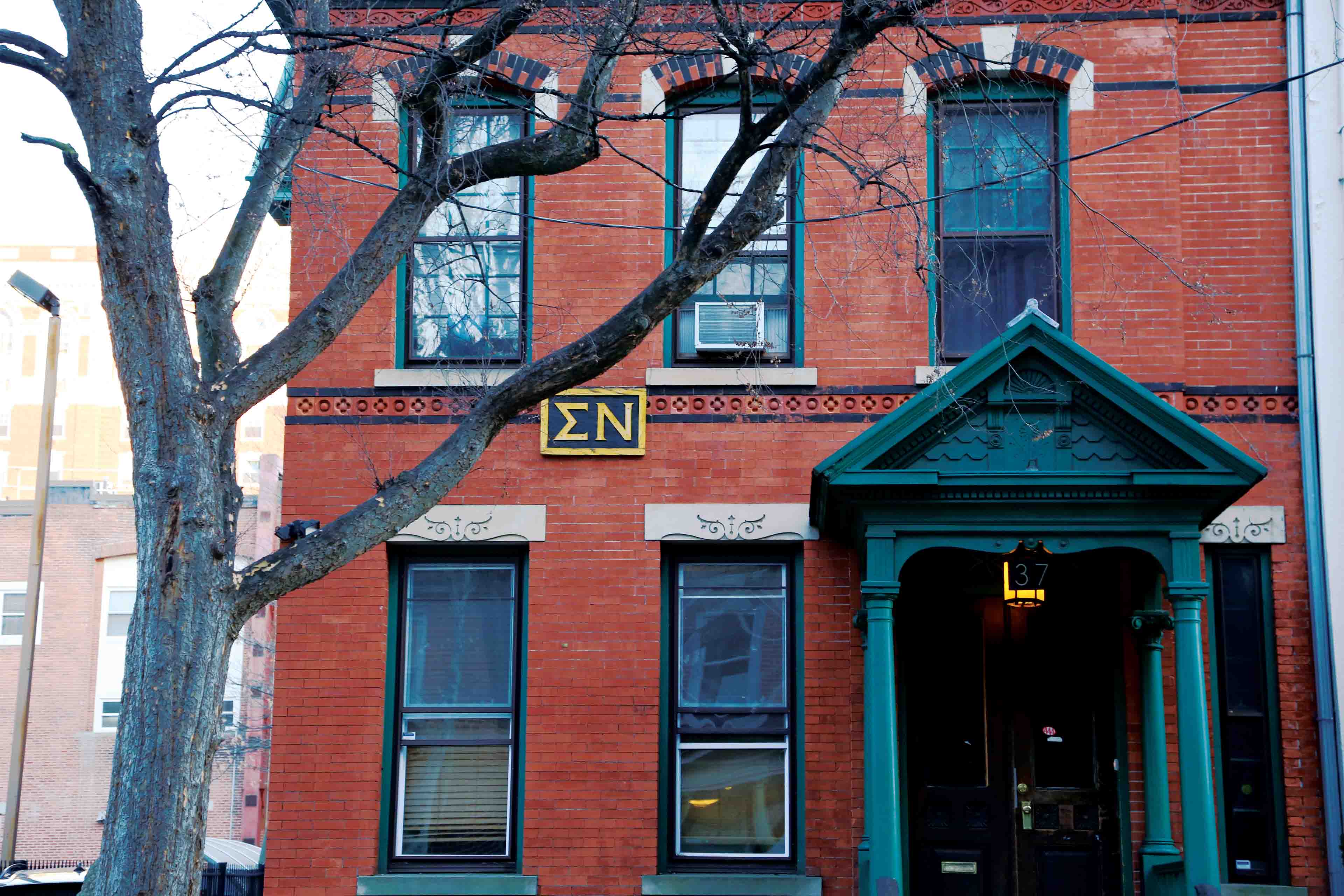
The fraternity Alpha Sigma Phi’s effort to seek out founding members for a potential chapter on campus sheds light on a process that is less regulated at Yale for fraternities than it is for sororities.
Alpha Phi, the last Greek organization to open a chapter on campus, was chosen by a committee formed of students, University administrators and members of the existing sororities’ national organizations after a seven-month search process. Alpha Sig, however, is not required to go through any of the same administrative hoops that Alpha Phi went through because no equivalent of the Yale Panhellenic Council exists for fraternities on campus.
The University will only become officially involved with the fraternity after Alpha Sig successfully founds a chapter at Yale using its own professionals and resources, said Layton Piver, director of expansion and growth for Alpha Sig, said. Although Alpha Sig has been in conversation with the Office of Student Life about coming to Yale for the past seven years, Piver said the amount of communication between the Yale administration and the fraternity’s national organization has been relatively low.
“They take more of a hands-off approach,” said Piver. “If the student interest is there, and we want to come in, [Yale] will support the students.”
Universities across the nation vary in their approach to working with fraternities interested in joining student life. Heather Matthews Kirk, chief communications officer of the North-American Interfraternity Conference, said the NIC encourages member fraternities, such as Alpha Sig, to collaborate with universities as they start new chapters.
Still, Kirk noted that campuses engage to varying degrees with fraternities exploring opening chapters, adding that some are more hands-off.
The process for sororities to establish chapters on campuses, however, is much more complicated. The National Panhellenic Conference, which represents 26 national and international sororities, requires that a college Panhellenic association, such as the Yale Panhellenic Council, be set up at any college campuses where two or more National Panhellenic Conference sororities have installed undergraduate chapters.
At Yale, before another sorority may open a chapter, the Yale Panhellenic Council has to consult with the chairman of the NPC Extension Committee and then successfully vote to form an extension exploratory committee composed of Panhellenic officers, delegates and alumna advisors, with the optional addition of faculty. Members of the Yale Panhellenic Council did not respond to a request for comment.
The exploratory committee researches the need to bring another sorority to campus before submitting a report to the Yale Panhellenic. The National Panhellenic Conference’s bylaws require a two-thirds majority vote to approve all expansion-related proposals in college councils. If the vote is successful, Yale Panhellenic decides which of the 26 total sororities in the NPC to invite to apply for a spot on campus.
Afterwards, Yale Panhellenic chooses no more than three sororities to give in-person presentations to members of the extension exploratory committee, sorority members and others in the campus community. The committee makes a recommendation to Yale Panhellenic regarding which sorority to invite, after which the other sororities at Yale vote on which organization to invite. There is one vote per Panhellenic sorority.
At least one member of Greek life expressed concern about the relative ease with which fraternities can set up chapters at Yale. A member of Theta, who asked to remain anonymous because sorority rules forbid members from making public statements about Greek life, noted that she has heard complaints within her sorority that the regulations for starting a new sorority have made it difficult for more sororities to open on campus to meet the increasing demand for Greek life among women at Yale.
The National Panhellenic Conference was founded in 1902.







